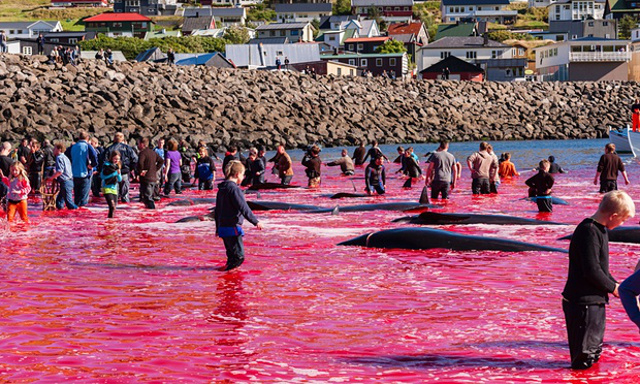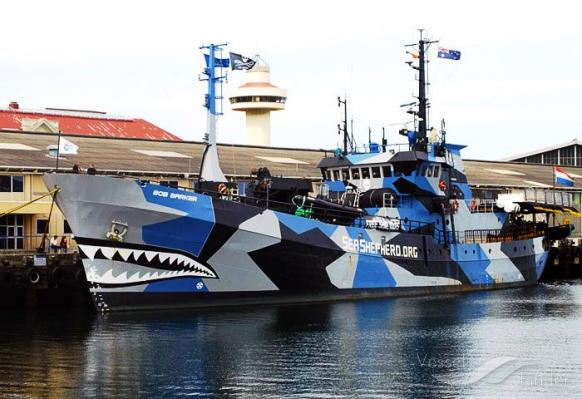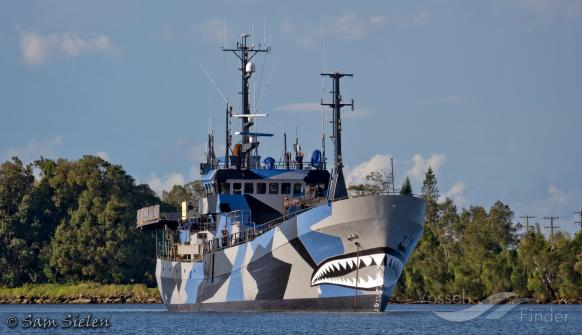Local authorities in the autonomous Faroe Islands of Denmark made an announcement on Monday (August 24) that they did not give permission for entry to a ship of the militant conservation group Sea Shepherd, which was trying to disrupt traditional whale hunts.

Image: Eydfinnur Olsen/Alamy
As it was stated by the local government institution, it had barred the Netherlands research ship Bob Barker with 21 activists on board, "with a basis in immigration legislation and in the interests of maintaining law and order".
"In recent weeks, anti-whaling activists representing the animal rights group Sea Shepherd have deliberately attempted to disrupt the legal and regulated activity of driving and killing pilot whales for food in the Faroe Islands, leading to the arrest, prosecution and expulsion from the Faroe Islands of a number of these activists," was written in the statement.
For many years there is a public dispute between those who defend the traditional whale hunt and the animal rights activists. Tensions between both groups are increasing over the last few years, specially from the side of the activist who say the practice causes unnecessary bloodshed.

Image: SEA SHEPHERDS
The whale hunt for some people is an annual festival or ritual, while for others it is taking place to provide food, and can happen at any time of the year. Primarily it occurs during the months of June through October when whales are led to a bay or the mouth of a fjord before being killed by hand.
According to Faroe Islands authority, the driving, beaching, killing and distribution of pilot whales are fully regulated by law and regulations. Catches are shared among the participants and local community for free where a catch takes place. This traditional community-based sharing of catches also ensures that the larger the catch, the more people get a share of it.
 However, the anti-whaling activists insists that the whale killing is commercialized, saying that whale meat and blubber is occasionally available for sale in some supermarkets and on the dockside.
However, the anti-whaling activists insists that the whale killing is commercialized, saying that whale meat and blubber is occasionally available for sale in some supermarkets and on the dockside.
Locals say that the number of animals killed is small compared with the population. About 800 whales are killed per year out of a population of more than 750,000, but activists say that the whale hunt extinguishes entire family pods, removing the entire gene pool, which impact over the entire North Atlantic population.
The whale meat is a traditional meal for Faroe Islands residents but more recently health authorities have advised to eat it only once a month, as in the meat are measured high levels of mercury/methyl mercury as well as other contaminants deriving from global industry.
Earlier this month, five Sea Shepherd activists were found guilty of disrupting the whale hunt.
On August 07th, the court handed down sentences ranging from a fine of 5,000 kroner (€670, US$735) or eight days in prison, to 35,000 kroner or 14 days in prison.
The activists were deported and the Sea Shepherd group was fined 75,000 kroner.